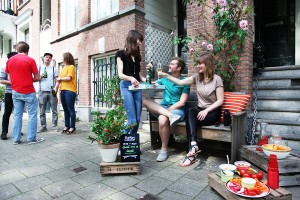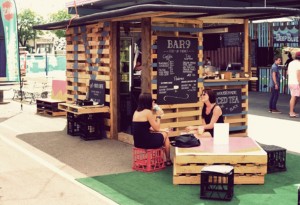With graduation approaching imminently, I am (of course) freaking out. I find myself envious of others who know exactly what they want to do, what profession they will be become from their degree. Doctor, lawyer, accountant, consultant, et cetera.
However, when I take a step back and look at the GRS program, I realize I don’t want to do just one thing – and that is completely okay. There are so many things I want to try, so many boundaries I want to redefine that I shouldn’t limit myself to the definitions that are already out there.
Ownership and accountability were huge themes in terms of discovery this semester.
In a conversation with Will Valley, we talked about whether as students, we truly realize that we are responsible for our own learning. We are responsible to discover, to understand and to use that knowledge to dream and create.
“Your generation must dream, dream more ambitiously than any who have preceded you. But just to dream is not enough. You must deliver on the dream where previous generations have fallen short.” – Dr. Jim Yong Kim, 17th President of Dartmouth College.
Similarly, in the video “This will Revolutionize Education” on the YouTube channel Veritasium, Derek Muller talks about many education revolutions start with advancing technology that eventually replace teachers. He continues by discussing that many studies compare different types of media (ex. still powerpoint slides versus animation) in order to figure out which is better as a learning tool.
What do these studies discover? There’s no significant difference in the types used. Learning is not limited by the amount of tools we have to teach.
What limits learning is what can happen inside the student’s head. So what is the role of the teacher if technology could, possibly, provide more and more information?
“The fundamental role of a teacher is not to deliver information; it is to guide the social process of learning. The job of a teacher is to inspire, to challenge, to excite their students to want to learn….the most important thing a teacher does is to make every student feel like they are important, to make them feel accountable for doing the work of learning“
So what of me and of us? It’s up to all of us to take ownership of our learning and discovery. And it’s our responsibility to not only dream ambitiously (for ourselves and for the world) but to make it a reality.
We are accountable to our future selves, to put in the work that’s needed to create the society we envision.
Climate change and environmental sustainability is the challenge of our generation. It’s up to us, especially, to deliver a better tomorrow.


